2025 Can-Am Maverick Sport Buyer’s Guide

$20,399 MSRP / 100 HP
•big fun for less cash
• Excellent Chassis
• Four Seater option
Because not everyone needs a race rig.
The Can-Am Maverick Sport is what it isn’t. It isn’t a fire-breathing race replica chasing huge horsepower figures, maximum suspension travel, or ludicrous top speeds. That being said, it’s still plenty fast, plenty powerful, and plenty capable in almost any terrain.
The Maverick Sport is a smart compromise for just about any recreational user. With two seat models starting at just over $20,000 and four seaters just under $23,000, these are honest rigs built to deliver full-sized fun without eating your full paycheck.
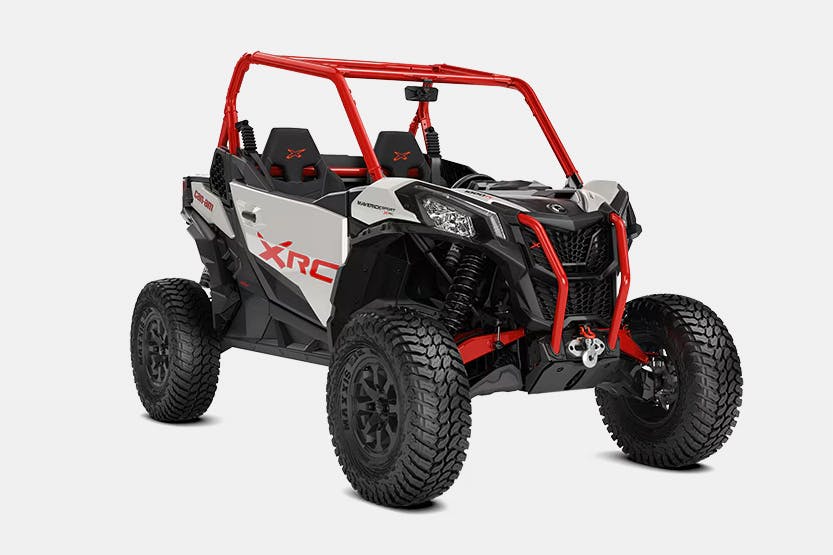
Can-Am builds the Maverick Sport in a few different flavors from basic 60-inch-wide rigs to models specially equipped for rock crawling, mud bogging, and everything in between. They’re all great value, so we’re here to narrow down the right Maverick Sport for you.
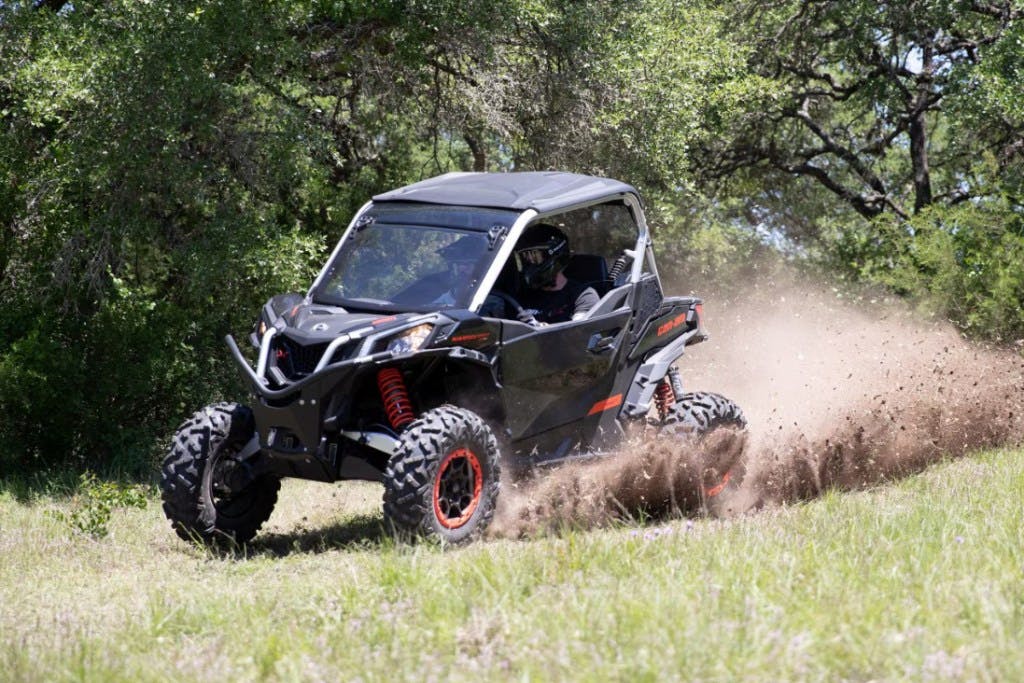
How much power does it make?
The 2025 Maverick Sports all run a 976cc, liquid-cooled, fuel-injected Rotax v-twin. They all make the same peak output of 100 horsepower from the base DPS to the top-tier XRC.
While that number seems small in the era of 200+ horsepower flagship sport rigs, it does come with advantages. Can-Am’s v-twin mill is under-stressed, which means it’s super reliable.
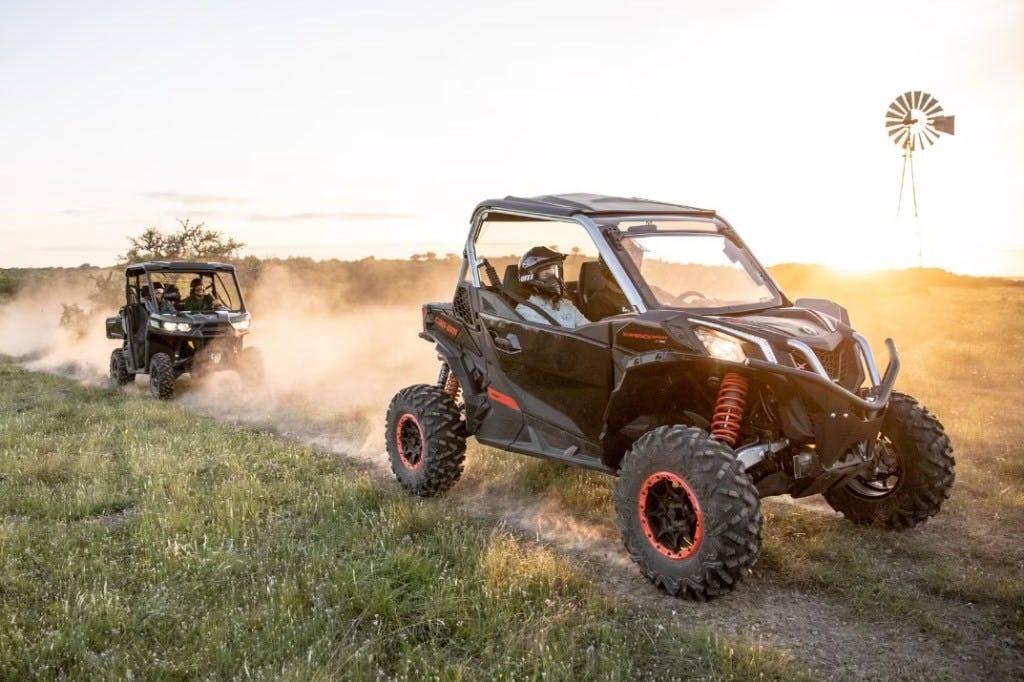
What makes it special?
The Maverick Sport got a major redesign back in 2019. While that makes it a bit long in the tooth, it means the Maverick Sport is affordable.
The 2025 Maverick Sport has the same $20,399 MSRP as the previous model. For that you get the aforementioned 100 horsepower engine, a planted chassis, quality Showa suspension, and a roomy and comfortable cockpit.
Handling is the Maverick Sport’s ace in the hole; every trim level is sure-footed and swift. Ride quality increases with nicer packages, but there’s great bang for your buck at every level.
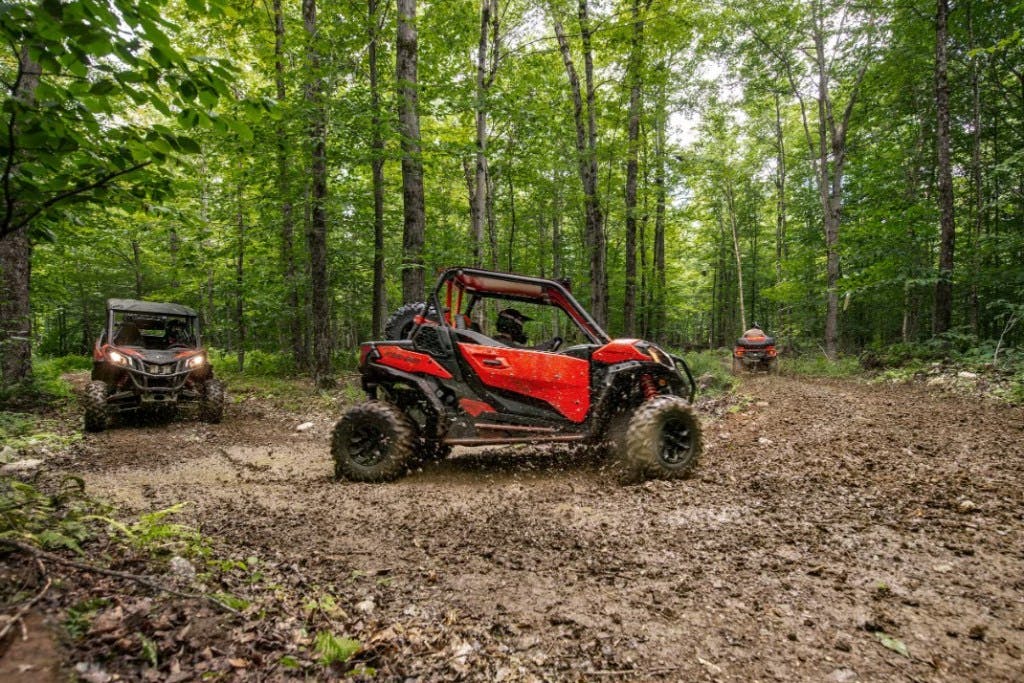
Why do I want it?
Value is the main selling point of the Maverick Sport, especially the $20,399 base model two-seater. If you prioritize good fueling, usable power, and a competent chassis, the Maverick Sport is a clear winner.
That value extends to Can-Am’s two specialty models as well, the rock-focused RC and mud-focused MR. Compared to the Maverick X3 X RC and X3 X MR, the naturally-aspirated Maverick Sport should save you about $5,000.
If you live in a place with width-restricted trails, the 60-inch-wide Maverick Sport DPS is perfect. Can-Am doesn’t build an X3 under 64 inches wide.
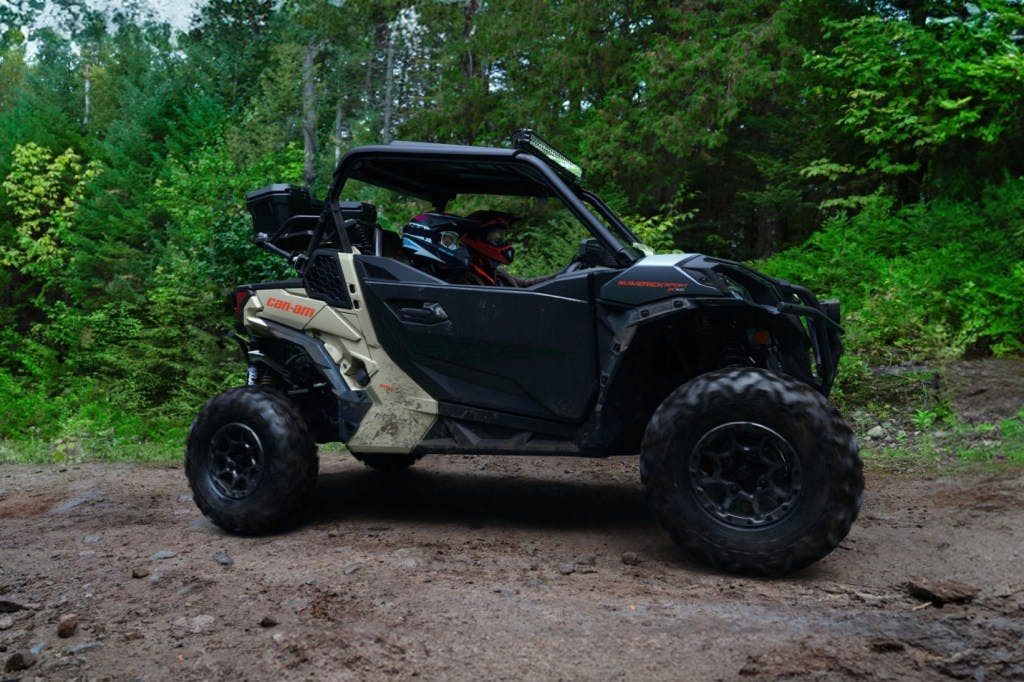
Why don’t I want it?
While the Maverick Sport is still great, it’s lost a big part of its competitive edge over the last few years. Even in Can-Am’s lineup, the base model Maverick X3 DS Turbo is just $1,600 more but has 35 more horsepower and nearly double the suspension travel.
The Polaris’ RZR XP 1000, a direct competitor of the Maverick Sport, has more power, more suspension travel, comes with larger 29-inch tires, and does it all for $19,999.
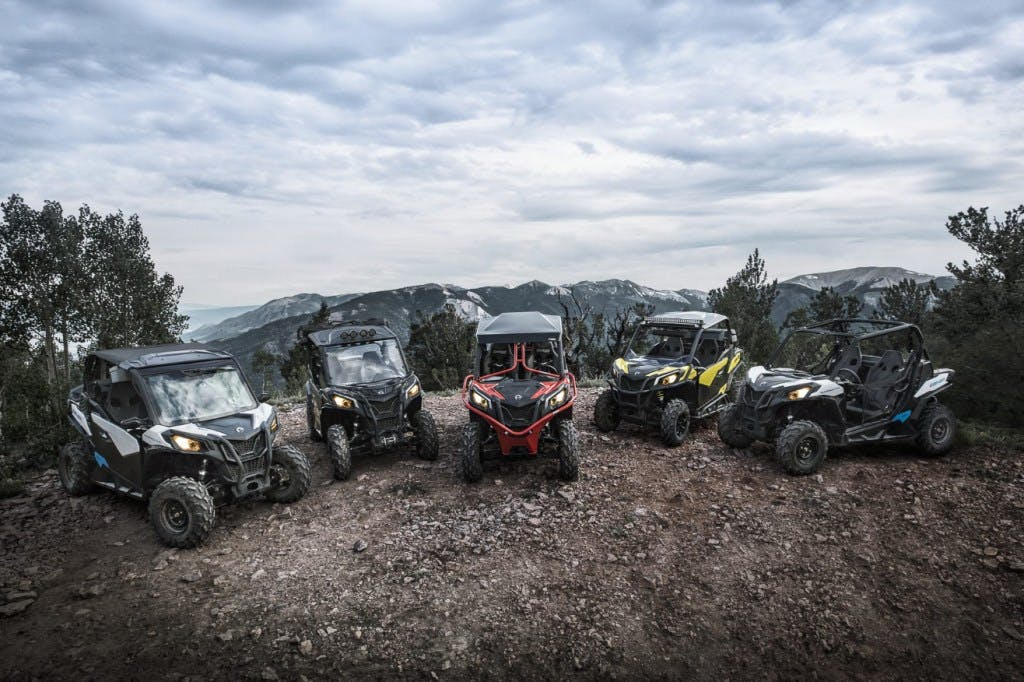
Which trim do I want?
If you’re one of the few folks still in the market for a 60-inch wide machine, the base model Maverick Sport DPS and it’s four-seat DPS Max counterpart are for you.
But because the standard Maverick Sport has lost its luster compared to the competition, we think the XRC or XMR are where the real value is. For a well-equipped rock crawling rig with adjustable Fox 2.5 Podium shocks, Can-Am’s excellent Smart-Lok front diff, better wheels and tires, and factory goodies like a 4,500-lb winch, the XRC’s $24,499 MSRP is hard to ignore.
The mud-focused XMR model has the same improvements and larger 30-inch tires, upgraded A-arms, and snorkels for the engine and CVT. You’ll miss out on the premium 7.6-inch digital display that comes standard on the XRC, but you’ll also save $400 with an MSRP of $24,099.
If I like this… what else should I look at?
If you want a good general use sport rig without breaking the bank, we’d recommend both Can-Am’s own Maverick X3 or Polaris’ RZR XP 1000 as higher performance alternatives with comparable price tags. We’d say the same for Honda’s Talon 1000R, which offers excellent all around performance backed by a reputation for reliability.
2025 Can-Am Maverick Sport Specs
*Base model DPS figures listed below, all others feature a 64-inch width*
Length: 119 in.
Width: 60 in.
Height: 71.1 in.
Wheelbase: 90.6 in.
Claimed Dry Weight: 1,405 lbs
Engine: Liquid-cooled V-Twin
Displacement: 976cc v-twin
Transmission: Quick Response CVT with electronic drive belt protection
Claimed Power: 100 hp
Claimed Torque: NA
Fuel System: EFI
Steering: Dynamic Power Steering
Drivetrain: Selectable 2WD / 4WD auto-locking front differential
Front Suspension: Dual A-arms with sway bar
Rear Suspension: TTA with sway bar
Front Brakes: Dual 220 mm disc brakes with hydraulic twin-piston calipers calipers
Rear Brakes: Dual 220 mm disc brakes with hydraulic twin-piston calipers
Wheels F/R: 12-in. cast aluminum
Tires F/R: Maxxis Bighorn 2.0 27 x 9/11 x 12 in.
Cargo Box Capacity: 300 lbs.
Towing Capacity: 1,500 lbs.
Seating Capacity: 2
Ground Clearance: 12 in.
Fuel Capacity: 10 gallons
